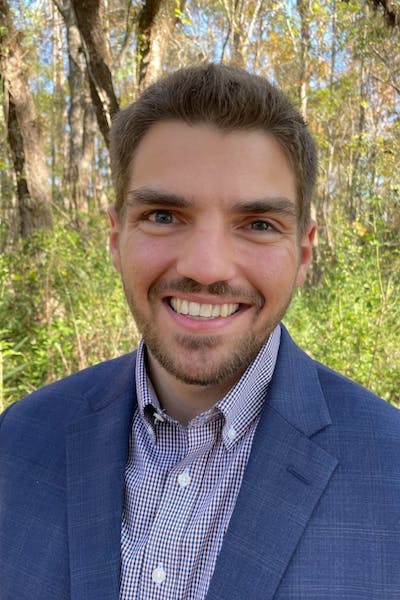AANHPI and Finances: Five ways to prepare for the care of aging family members
By Michael Forney | Published May 31, 2023

Research shows that more than 70 percent of Asian American, Native Hawaiian, and Pacific Islanders (AANHPI) believe they are expected to care for their parents—which can cause a financial toll in addition to emotional stress. As AANHPI Heritage Month wraps up, we take a look at what this responsibility means for members of the AANHPI community and tips on how best to prepare.
Caring for aging family members is a common scenario in many cultures, especially as our demographics continue to shift worldwide, but AANHPI individuals may feel more obligated due to a strong commitment to extended family. They are also more likely to experience income equality, costly living due to greater concentration in urban areas, and high spending on children and education.
From housing to daily tasks, the circumstances around the care of a parent or another family member all carry costs, including mental energy, time, and financial sacrifice. Medical care can add up exponentially, impacting desired generational wealth in the AANHPI community. While these discussions are difficult, the best way to ensure a healthy outcome for all is to be prepared. Here are five tips:
1. Organize the financial picture: Before outlining a plan, collect any and all financial information for both the caregiver (you) and the relative. This should include bank account statements, savings accounts, retirement accounts, insurance coverage, and social security information, to name a few. Reviewing all of the pertinent details will help paint a picture to increase awareness for both parties and give you a path forward.
2. Work to solve any gaps: Armed with the financial landscape, next, you can identify what areas of opportunity exist. This evaluation can include reducing spending and increasing savings to address immediate cash needs with an emergency fund, working to pay down debt, or evaluating the current protection plan with insurance needs (discussed below). Improving areas of weakness can help put guardrails in the overall financial plan to prevent catastrophe and aid in your ability to care for loved ones.
A brief note on a protection plan, which is a critical component of any financial strategy and is even more important when planning to care for loved ones: Your approach should expand beyond adequate coverage for the home, automobile, and personal items, also covering life and disability insurance.
In the event of premature death, or, more likely—long-term disability—you may find insufficient income or assets to support loved ones. Review the benefits available through your employer; disability and life insurance are standard in employee benefits packages. You might also consider working with an insurance agent to help with this decision-making. Aim to have at least 60 percent income replacement on both short and long-term disability, and take into consideration future income, debt payments, potential college expenses, and potential burial costs for life insurance.
3. Ensure you and your elder loved ones have an estate plan set up: Similar to an insurance plan, an estate plan is another element that can create a lot of hassle if not set up properly. Fundamentally, an estate plan ensures assets are going to the correct persons and places upon passing. However, it is much more than that.
Most are familiar with the Last Will and Testament, which outlines your final wishes, but it is also important to account for things like financial powers of attorney and healthcare surrogates, including a living will. This helps create stop gaps in the event your elder loved ones become incapacitated and are unable to make decisions. The last thing you or your loved one would want is to leave decision-making up to the courts.
4. Exercise good investing habits: This is true during any phase of financial life, but there is greater emphasis when considering caring for loved ones in the future. You want to have sufficient assets to help cover your retirement, and you may also need to account for additional expenses beyond that if caring for loved ones. Aim to have a well-diversified investment portfolio to help minimize investment risk and maximize return.
5. Consider working with a professional: Each of the actions outlined above are challenging to accomplish, especially on your own. Consider working with professionals like CFP®s, CPAs, estate planning attorneys, and insurance agents to help you along the way. Though members of the AANHPI community tend to be self-reliant and lifelong learners, collaborating with a professional can help you identify unexpected areas of growth and opportunities.
Taking care of a loved one is no small task and is something that should be properly planned for. Consider speaking with your elder loved ones about the possibility of caregiving and lay out expectations. Ensuring everyone is on the same page can go a long way in your efforts to care for your AANHPI loved ones.
The author is not a member of the AANHPI community and does not have firsthand knowledge or understanding of the social or economic challenges faced. This blog is purely based on research and we recognize that this does not address every financial challenge faced by those who identify as AANHPI.
Newfront Retirement Services, Inc. is an investment adviser registered with the U.S. Securities and Exchange Commission. Registration as an investment adviser does not imply any level of skill or training, and does not constitute an endorsement by the SEC. For a copy of Newfront Retirement Services disclosure brochure, which includes a description of the firm’s services and fees, please access www.investor.gov or click HERE for the disclosures on our website.

Michael Forney
Investment Advisor and Financial Wellness Specialist
Michael is an Investment Advisor and Financial Wellness Specialist focusing on providing employee education and partnering with clients on financial wellness strategies. He possess a depth of knowledge on employer sponsored retirement plans, particularly the 401(k), and has a broad range of financial knowledge on investments, high-level tax benefits of various retirement accounts, and savings strategies. Previously, Michael worked at a top producing advisory firm where he built financial plans for families and businesses as a Financial Planning Specialist.
Connect with Michael on LinkedIn

